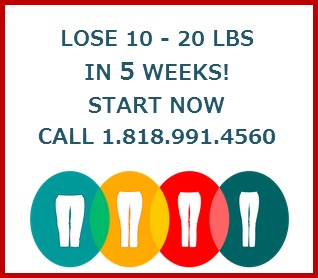1) Eating too fast. This one can creep up on you. I grew up in a very large household so eating fast was a sure way to get your fair share as well as make room at the table. But you need to slow down. Slowing down aides your digestion by breaking down the food you just consumed properly, converting it into energy and everything the body need to function. It’s also a great way to avoid overeating.
2) Eating too late. This is a problem for many people. If you eat too late your food will just sit there and not be digested effectively. Lying down right after eating, or worse trying to go to sleep after a meal, compromises the body’s ability to break down food adequately. Since you are not using the food you ate for energy much of the calories are stored as fat stores especially if you do this on a regular basis. Eating late also causes poor sleep patterns often causing you to wake up groggy and sluggish. Try and eat your evening meals and/or snack at least 2 to 3 hours before bedtime.
3) Eating too much. It’s an epidemic. Eating too much, too often and having large portions can be detrimental to your health. If you’re cooking at home, portion out your food in the kitchen. Try not to put the bowls and food platters on the table – you’ll be less tempted to overload your plate if you do. If you wish to manage your portions even more efficiently – you can weigh out your food with a small kitchen scale.
4) Eating too little. Eating insufficient amounts of food can also be a problem. If you’re fasting for too long your body will start storing fat versus burning fat or carbohydrates as a fuel source. Eat at regular intervals throughout the day. Avoid spacing out your eating times for too long a period as that may wreak havoc with your insulin and blood sugar balance. Intermittent fasting can be a good strategy. I usually recommend a five day Fasting Mimicking Diet (FMD) every month. This will allow your body to have a rest as well as provide enough good nutrition without depleting your body which a pure fast can do. A fasting mimicking diet assists in recharging your body by enhancing metabolism benefiting your entire system.
5) Eating when stressed. This is a biggie as well. Eating when you’re stressed means you’re not tasting the food and you’re not really honoring the process of nourishing yourself. You need to make eating a meal into a sacred experience. If you are stressed you may be eating on the run or eating too much of the wrong things. Your cortisol and adrenal hormones become activated and often interfere with digestion. Wait until you’re calmer allowing yourself to appreciate your food and your whole nourishing experience that much more.
6) Eating out of boredom. Even though it’s not exactly stress eating it’s similar to it in that you end up eating many of the wrong foods, you’re snacking more and possibly over eating. Find other activities that interest you and soon you’ll find food is the furthest thing from your mind. You’ll be getting filled up in other ways. Exercise, a good conversation, a good book, going to the beach are all good examples of enjoyable activities.
7) Eating for entertainment. Food is meant to nourish you and give you the nutrients you need to function it’s not intended to be an entertainment experience. Not to say that food cannot be interesting, tasty, delicious and an experience that all your senses can be involved in. Involving all your senses is exactly how eating should be. You should be totally connected to the food you’re eating and, again, make it a sacred experience. However when you’re looking for fun and excitement in your food and in your daily eating habits you’re not really tasting the food. So slow down, taste and enjoy.


Categories : Uncategorized
Coaching For Health Advisory Board
Pamella Foster, DC — Chiropractor and Wellness Advisor
Janette Kinnally, M.A. — Business Coach
Joyce Kovelman, Ph.D. — Psychologist and Author
Robin Rogosin — Whole Foods Markets — Senior Buyer
Gail Solomon — Founder and CEO of On-Site Laser Medic
Jennifer Sudarsky, M.D. — Women’s Health











